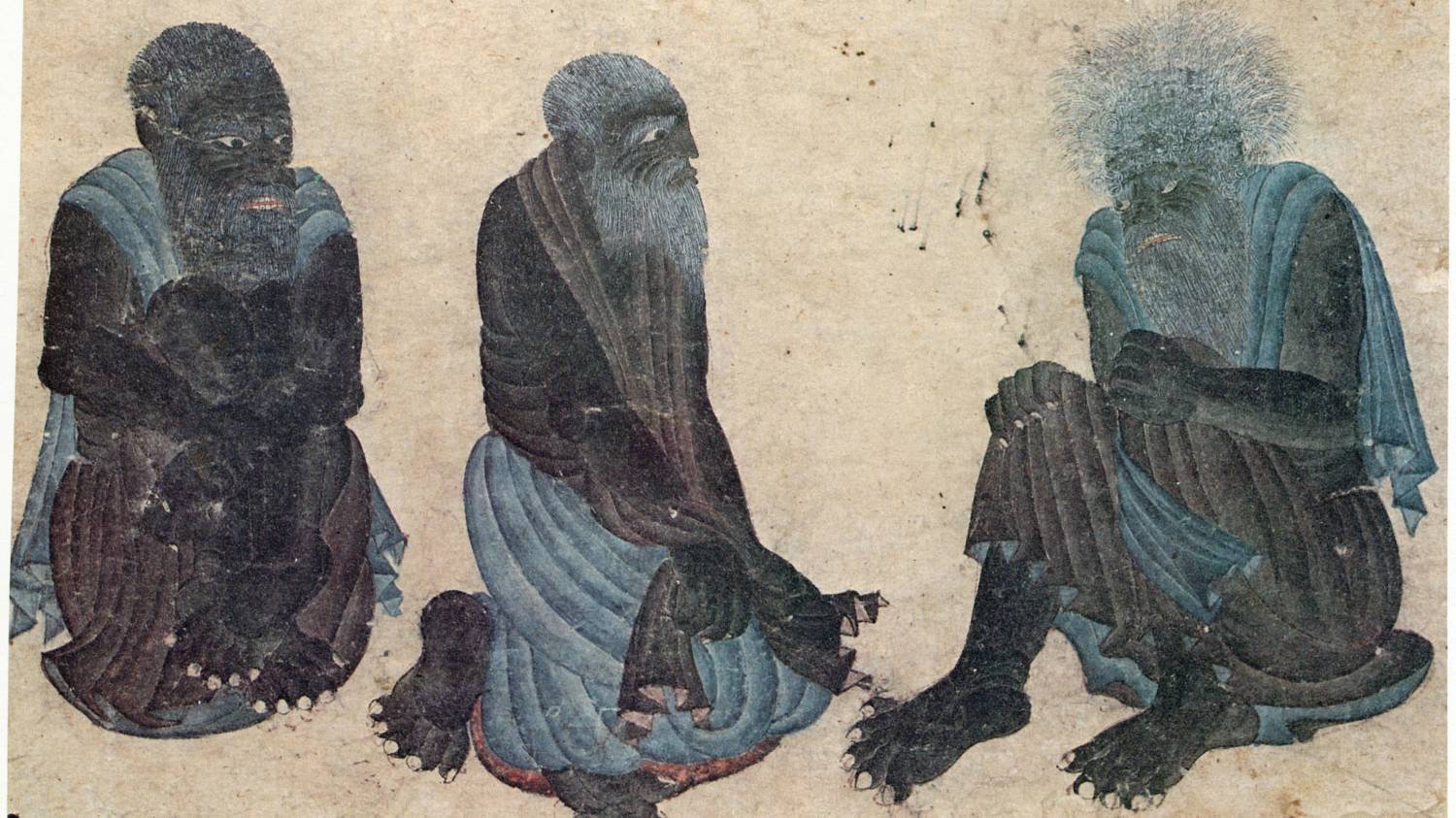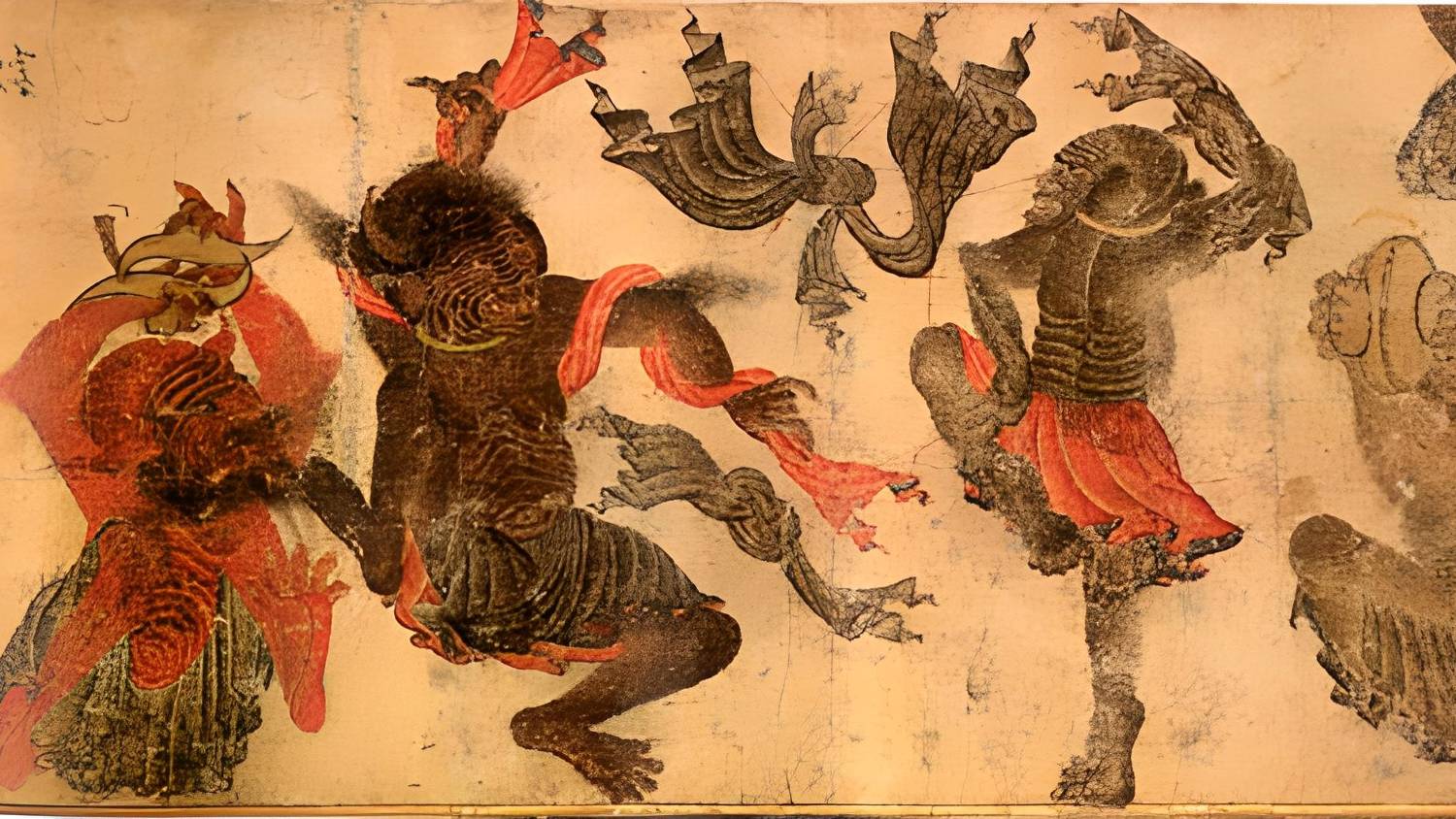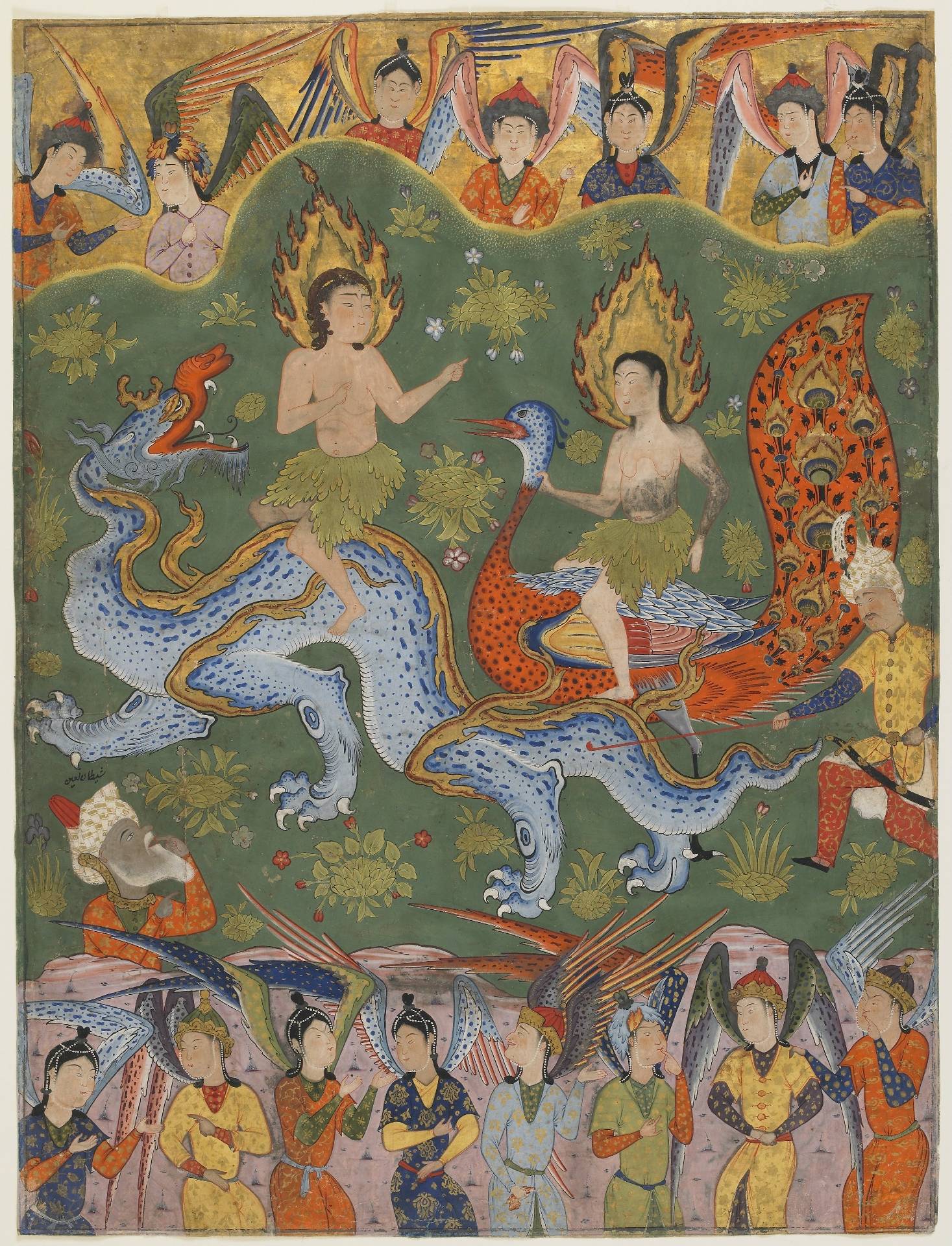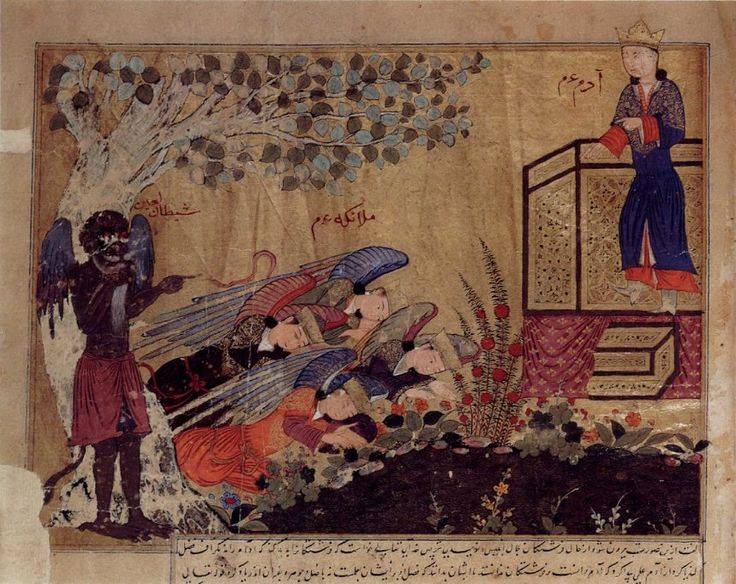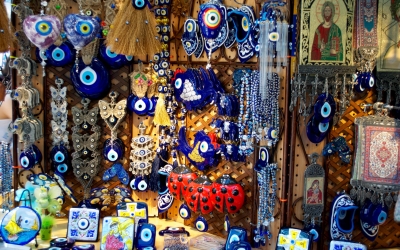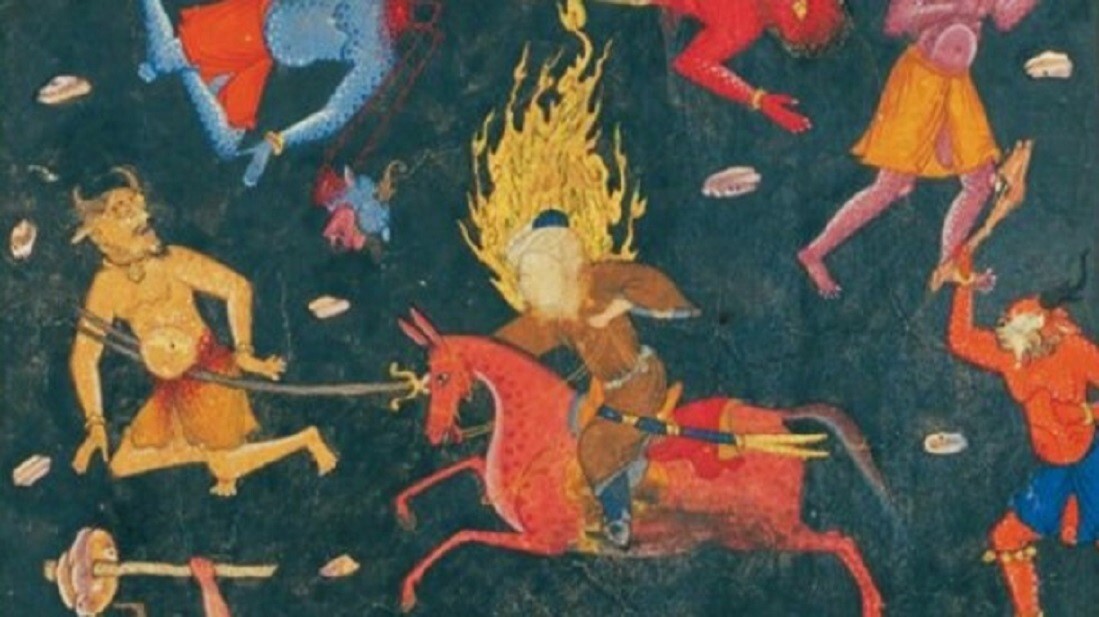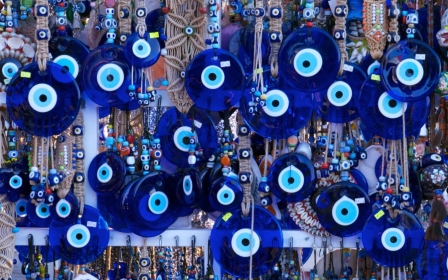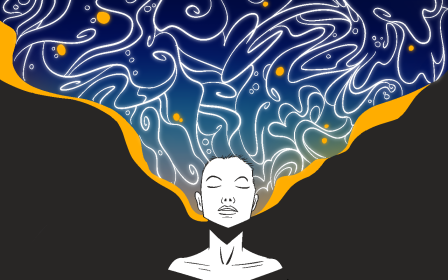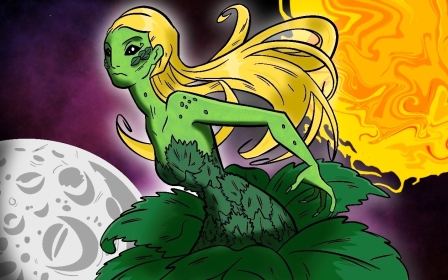Jinn: Who are the supernatural beings of Arabian and Islamic tradition?
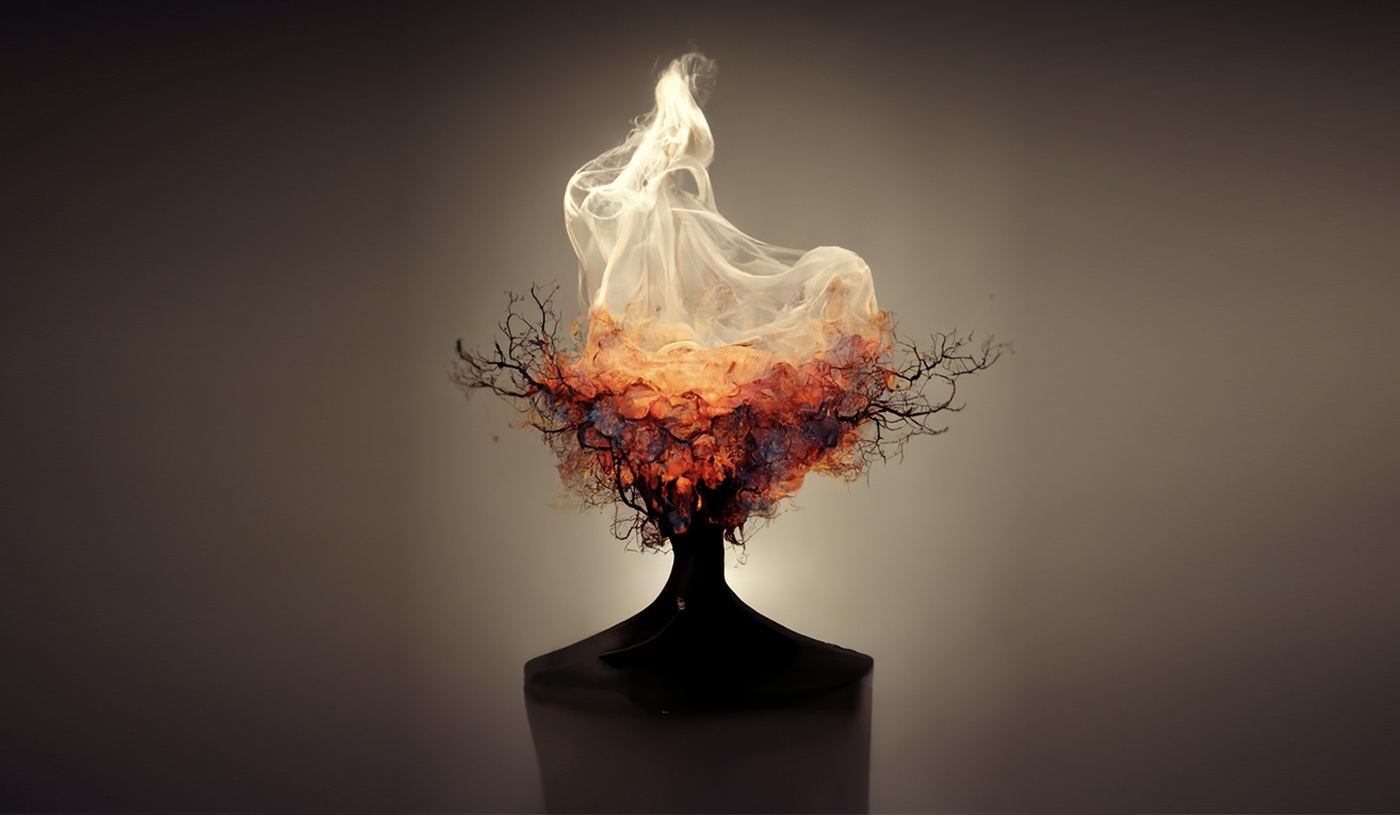
In Islamic doctrine, the story of mankind begins with an act of rebellion by a jinn when the devil, later known as Iblis, refuses to prostrate himself towards the image of Adam.
As punishment, the devil is expelled from the heavens and so begins his war against God and man. He later tricks Adam and Eve in the Garden of Eden, catalysing their own fall from paradise.
Made from a smokeless fire, Iblis and jinn like him are nevertheless spiritually similar to man in that they are capable of independent moral judgement and freedom of action.
Not all jinn are considered devils and, in Islamic tradition, many have served as friends and helpers of mankind, although interaction between the two is discouraged.
New MEE newsletter: Jerusalem Dispatch
Sign up to get the latest insights and analysis on Israel-Palestine, alongside Turkey Unpacked and other MEE newsletters
In the Muslim imagination, the jinn occupy a shadow world, at once shared with humans but also transcending time and physical space.
They can see and hear the things humans do, and some have the ability to influence human action, quietly influencing men and women to make choices that may not be in their best interests.
Ones that constantly accompany humans are known as qareen, just one type of several jinn that are believed by some to live in our midst.
The word "jinn" comes from the Arabic trilateral root "ja-na-na", which means to hide or to conceal, an apt description for beings that are kept hidden from human vision, existing in a parallel world known as al-Ghaib, or the unseen.
Amira el-Zein, author of Islam, Arabs, and the Intelligent World of the Jinn, suggests the beings were worshipped by pre-Islamic Arabs, who associated them with elements of nature.
Some researchers and hobbyists have also suggested that the jinn originate in ancient Mesopotamian mythology, where jinn-like entities were worshipped as gods.
Earth's original residents
In some Arab traditions, the jinn are said to be the original inhabitants of the earth, and once ruled the planet after battling other life forms known as Hinn, made of wind, and Binn, made from water.
Zakariya al-Qazwini, an 11th-century Persian cosmographer, placed the origin of jinn early on in God’s creation of life, before humankind.
So fascinated was Qazwini with the supernatural, that he produced an illustrated book with drawings of fascinating, unnamed mythical creatures.
The book entitled Ajaib al-Makhluqat wa Gharaib al-Mawjudat, or Marvels of Things and Miraculous Aspects of Things Existing was written in Arabic and translated into Persian and Turkish.
Under his description of the animal kingdom, he wrote a chapter on creations including monsters, demons and jinn, where the latter are described as imperceptible creatures able to shapeshift.
Revered by some pre-Islamic societies, who may have also gone on to worship the jinn as deities, the invisible beings are mentioned throughout the Quran, where they are described as being made of a smokeless flame.
There is even an entire chapter, Surah Jinn, dedicated to them, and throughout the holy book, readers are reminded that salvation is offered to both jinn and humankind.
In one mythological tradition, the Earth was once a hotbed of chaos caused by the Hinn and Binn, who may have been ancient tribes that had supernatural powers.
Hinn were mentioned in pre-Islamic Arabian lore, and their existence has been accepted by Alawi Muslims and the Druze community.
The Druze also believe in Binn, who were once said to live in what is now Yemen.
They also refer to Rimm and Timm, with some suggesting all four are the same beings described in the biblical Book of Genesis as the Nephilim, mysterious giants who existed in a time before humankind.
Angels, humans and jinn
In some traditions, adopted by Muslims, once the jinn successfully defeated Hinn and Binn, they became the masters of earth, but instead of peace ensuing, destruction followed, until angels made of pure light were sent to earth to battle the bad jinn who were causing carnage.
A similar story has been told in the Book of Enoch, which describes a battle between angels and demons, and may have been the inspiration for later descriptions of jinn by Muslims, such as al-Qazwini and Ibn Kathir’s.
When the angels won the fight, the bad jinn were cast to remote parts of the planet, such as islands, caves, and forests. They later featured in Arabian tales as haunting spirits in abandoned terrain, lying in wait for passing travellers to torment.
Others are said to have built homes in the ruins of civilisations like Maadain Saleh, now in modern-day Saudi Arabia - a place where the Prophet Muhammad is said to have walked through quickly to avoid the jinn - and Iram, in modern-day Oman.
In places where jinn are assumed to live, Muslims are encouraged to recite certain prayers for protection, in case they become annoyed by human presence in their unseen homes.
Some of the jinn were captured and taken as prisoners back to heaven where they were taught by angels. It's here that one jinn - sometimes unnamed, sometimes known as Azazel - came to be known as Iblis or Satan after his pride made him refuse God’s orders to bow to Adam.
He is thought to be the leader of the demonic jinn, said to cause fitna (troubles) and lead people to their own destruction.
According to Imam Muslim, a ninth-century Persian Islamic scholar, Iblis had five sons, though the identity of their mother remains unclear.
Each of them is a master in creating specific troubles. Tir or Thaber causes physical injuries, Sut or Misut spreads lies, Zalmbur encourages dishonest business transactions, Aawar encourages adultery and seduction, and Dasim plays the biggest role.
The jinn creeps into homes to cause problems within a family, especially between a husband and wife, thus breaking the family structure, Iblis’ greatest victory.
Mostly thought of as being malicious spirits, in Islamic tradition, there are also good jinn who live quietly side-by-side among humans in a parallel unseen dimension. Like humans, they have family structures, kingdoms and can be of any faith or none.
Believers in jinn sometimes credit these beings with helping to build some of antiquity's greatest buildings, such as the Pyramids and the Temple of Solomon.
In the Quran, King Solomon, known as Prophet Suleiman in the Muslim world, had the power to control jinn and was told to keep them occupied to ensure they didn’t have time to cause disruption on earth.
It was their strength and heavy-labour skills that he was said to have deployed in building his great temple.
Possession
Historically, the jinn have played a big part in Bedouin folklore. Poetry, an ancient and cherished tradition in pre-Islamic Arabia, is often attributed to jinn-like possession.
Others still blame the unseen world for medical conditions such as epilepsy or bipolar disorder, keeping the illnesses under wraps because of the societal stigma associated with supposed jinn-possession and instead seeking the help of religious figures to help with exorcism.
Sufis and mystics are sometimes sought to exorcise bad jinn, using haunting and ecstatic nawa music, and cupping therapy is used by some to clear away the jinn, sometimes referred to as bad energy.
Today with the spread of scientific rationalism, belief in the jinn amongst Muslims is increasingly either explained away as allegory for natural phenomena, or mentally set aside as another of God’s unfathomable mysteries.
Some say the jinn cannot physically possess human beings, the worst they can do is to plant thoughts in the mind, leaving it up to the individual to accept or reject.
Their existence and their form remain open to interpretation, with some Muslims saying they are purely metaphorical and others saying that denying belief in jinn negates someone's belief in Islam.
Belief nevertheless remains widespread even amongst nominal believers, with associated traditions passed on to new generations like sharing jinn stories during sleepovers and family get-togethers, and rituals such as the wearing of amulets and the use of prayers.
Middle East Eye delivers independent and unrivalled coverage and analysis of the Middle East, North Africa and beyond. To learn more about republishing this content and the associated fees, please fill out this form. More about MEE can be found here.


